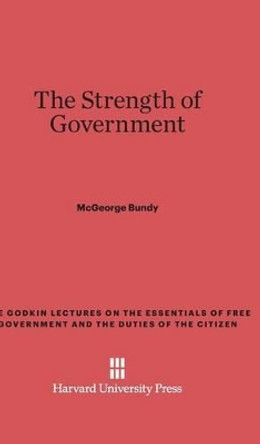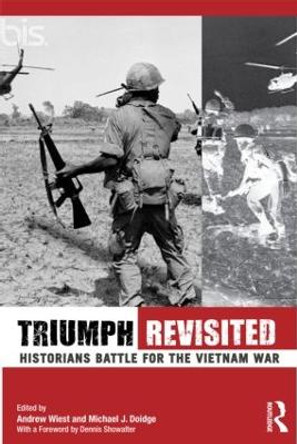Description
Was the Vietnam War unavoidable? Historians have long assumed that ideological views and the momentum of events made American intervention inevitable. By examining the role of McGeorge Bundy and the National Security Council, Andrew Preston demonstrates that policymakers escalated the conflict in Vietnam in the face of internal opposition, external pressures, and a continually failing strategy.
Bundy created the position of National Security Adviser as we know it today, with momentous consequences that continue to shape American foreign policy. Both today's presidential supremacy in foreign policy and the contemporary national security bureaucracy find their origins in Bundy's powers as the first National Security Adviser and in the ways in which he and his staff brought about American intervention in Vietnam. Presidents Kennedy and Johnson were not enthusiastic about waging a difficult war in pursuit of murky aims, but the NSC's bureaucratic dexterity and persuasive influence in the Oval Office skewed the debate in favor of the conflict.
In challenging the prevailing view of Bundy as a loyal but quietly doubting warrior, Preston also revises our understanding of what it meant--and means--to be a hawk or a dove. The War Council is an illuminating and compelling story with two inseparable themes: the acquisition and consolidation of power; and how that power is exercised.
A superb study of one of the key shapers of America's Vietnam policy and of the National Security Council he led. Preston is an enormously talented young historian, and his skills are on display in this powerful and instructive book. -- Fredrik Logevall, author of Choosing War: The Lost Chance for Peace and the Escalation of War in Vietnam An impressive book that establishes more than any previous work the critical role of the reorganized National Security Council under Kennedy and Johnson. Preston skillfully demonstrates that McGeorge Bundy was key in gaining the national security adviser an influence comparable to that of the secretaries of state and defense. -- Gary R. Hess, author of Presidential Decisions for War In a vivid portrait of the intelligent, influential, and insidious McGeorge Bundy, Preston demonstrates that Bundy and his counterparts failed as policymakers because they made choices that reflected their own experiences, not the conditions of the world beyond America's borders. This is a sobering and timely book that everyone interested in foreign policy should read. -- Jeremi Suri, author of Power and Protest: Global Revolution and the Rise of Detente A powerful and graceful account of the influence of McGeorge Bundy's National Security Council in shaping U.S. foreign policy in the Vietnam era. Preston's astute examination of the 'soft hawks' who took us to war underscores the need for us to constantly revise what we know of our history. The War Council is a formidable contribution. -- Kai Bird, co-author of American Prometheus: The Triumph and Tragedy of J. Robert Oppenheimer
About the Author
Andrew Preston is University Lecturer in History and a Fellow of Clare College, Cambridge University.
Reviews
A superb study of one of the key shapers of America's Vietnam policy and of the National Security Council he led. Preston is an enormously talented young historian, and his skills are on display in this powerful and instructive book. -- Fredrik Logevall, author of Choosing War: The Lost Chance for Peace and the Escalation of War in Vietnam
An impressive book that establishes more than any previous work the critical role of the reorganized National Security Council under Kennedy and Johnson. Preston skillfully demonstrates that McGeorge Bundy was key in gaining the national security adviser an influence comparable to that of the secretaries of state and defense. -- Gary R. Hess, author of Presidential Decisions for War
In a vivid portrait of the intelligent, influential, and insidious McGeorge Bundy, Preston demonstrates that Bundy and his counterparts failed as policymakers because they made choices that reflected their own experiences, not the conditions of the world beyond America's borders. This is a sobering and timely book that everyone interested in foreign policy should read. -- Jeremi Suri, author of Power and Protest: Global Revolution and the Rise of Detente
A powerful and graceful account of the influence of McGeorge Bundy's National Security Council in shaping U.S. foreign policy in the Vietnam era. Preston's astute examination of the 'soft hawks' who took us to war underscores the need for us to constantly revise what we know of our history. The War Council is a formidable contribution. -- Kai Bird, co-author of American Prometheus: The Triumph and Tragedy of J. Robert Oppenheimer
It is in exploring how Bundy convinced two presidents of the rightness of his argument that The War Council provides fresh insight. Most histories of the Vietnam war focus either on the combat itself or on the political leadership involved. Mr. Preston looks not at the flashes of gunfire but at the more shadowy world of bureaucratic infighting...[The War Council] shows all too clearly what happens when the White House circle of decision-makers has too small a radius. Clearly, leaders have the right to rely on a loyal few; excessive debate and deadlock are not desirable. But as America is once again learning, people in power need to make sure that the decisive circle includes those who actually know a region. * The Economist *
Buffs of the 1960s and 1970s will relish Andrew Preston's outstanding The War Council, a superbly researched reinterpretation of the origins of the Vietnam War that confirms its author's reputation as the rising star of American History. -- Dominic Sandbrook * Daily Telegraph *
Preston has captured his subject well. His research is impeccable. -- David A. Welch * Literary Review of Canada *
With admirable clarity, Preston sketches Bundy's intellectual heritage...Preston's book is a definitive account of the train wreck into which Bundy and his allies drove the United States in Vietnam. -- Marilyn Young * International History Review *
This book is well written, neatly incorporates many primary sources, and provides cogent summaries of the positions taken by Bundy and some of his key assistants. The author also provides an excellent synopsis both of Bundy's intellectual development and of the transformation of the NSC during this period. -- John Garofano * Political Science Quarterly *
Awards
Nominated for OAH Frederick Jackson Turner Award 2007 and Ellis W. Hawley Prize 2007 and John H. Dunning Prize 2007 and Stuart L. Bernath Book Prize 2007 and Woodrow Wilson Foundation Award 2007 and Mark Lynton History Prize 2007 and Arthur Ross Book Award 2007 and Edgar S. Furniss Book Award 2006.
Book Information
ISBN 9780674046320
Author Andrew Preston
Format Paperback
Page Count 336
Imprint Harvard University Press
Publisher Harvard University Press










